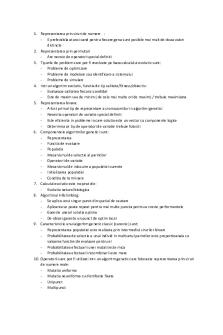Trompenaars 2 - Forelesningsnotater 3 PDF

| Title | Trompenaars 2 - Forelesningsnotater 3 |
|---|---|
| Course | Business Communitication |
| Institution | Handelshøyskolen BI |
| Pages | 4 |
| File Size | 284.2 KB |
| File Type | |
| Total Downloads | 18 |
| Total Views | 122 |
Summary
notater...
Description
Trompenaars • Started • his research in the 1990s • Interviwed managers in a variety of companies in 23 countries • First arrived at seven dimensions of culture and then applied them to the 23 countries Trompenaars´3 dimensions of culture: 1. Universalism vs. Particularism Rules vs. Relationships 2. Achievement-based vs. Ascription-based How we accord status 3. Inner-directed vs. Outer-directed How we relate to nature
1. Universalism vs. Particularism • Are rules or relationships most important for decision-making?
Universalist cultures: •
Rules and laws apply to everyone
•
Equal treatment the ideal
•
One universal truth regardless of whom you are dealing with
•
Stick to the contract
US, Norway, UK, Germany, (France)
Particularist cultures: •
Relationships more important than rules
•
Preferential treatment common and acceptable
•
Willingness to change procedures depending on the particular person one is dealing with
•
May try to change the contract
China, Japan 2. Achievement-based vs. ascription-based •
How is status accored?
Trompenaars’ definition (use on exam!): «While some societies accord status to people on the basis of their achievements, others ascribe it to them by virtue of age, class, gender, education, and so on. The first kind of status is called achieved status and the second ascribed status. While achieved status refers to doing, ascribed status refers to being.» (Trompenaars, 2012, p. 125)
Status in achievement-based cultures •
Status achieved by competent and industrious people
•
Young, competent employees often promoted
•
Good academic results
•
Status depends on merit, not gender, age or family
US, Norway, UK, Germany Status in ascription-based cultures •
Status ascribed to you based on who you are
•
Old men with long seniority
•
Having attended prestigious schools
•
Status depends on gender, age and family background
Japan, China, (France) 3. Inner-direction vs. outer-direction •
Reflect attitudes to nature and your surroundings
Inner-directed cultures: •
Try to control the surroundings
•
“Can-do” spirit
•
Product-centered: Create demand through massive advertising
•
Man in charge of his own destiny
US, Norway, Germany, UK, France
Outer-directed cultures
•
Try to adjust to or act with the surroundings
•
Passive approach; “you go with the flow”
•
Customer-centered: Make products catering to customers
•
Fatalistic and often superstitious
China, Japan...
Similar Free PDFs

Sammendrag fra forelesningsnotater
- 35 Pages

Dekningssalg - Forelesningsnotater 1
- 14 Pages

Alberi 2-3 - Alber 2-3
- 2 Pages

TEMA 2 Y 3 - Apuntes 2-3
- 7 Pages

Assignment 2 - Chapter 2 & 3
- 9 Pages

Week 3 2 - dsdcd
- 13 Pages

Grile 2-3 info
- 6 Pages

2-3 Pycharm Introduction
- 1 Pages

Übungsfragen ITG (2/3)
- 4 Pages

Quizz 3 - ingles 2
- 1 Pages

Español 2 Autoevaluación 3
- 4 Pages
Popular Institutions
- Tinajero National High School - Annex
- Politeknik Caltex Riau
- Yokohama City University
- SGT University
- University of Al-Qadisiyah
- Divine Word College of Vigan
- Techniek College Rotterdam
- Universidade de Santiago
- Universiti Teknologi MARA Cawangan Johor Kampus Pasir Gudang
- Poltekkes Kemenkes Yogyakarta
- Baguio City National High School
- Colegio san marcos
- preparatoria uno
- Centro de Bachillerato Tecnológico Industrial y de Servicios No. 107
- Dalian Maritime University
- Quang Trung Secondary School
- Colegio Tecnológico en Informática
- Corporación Regional de Educación Superior
- Grupo CEDVA
- Dar Al Uloom University
- Centro de Estudios Preuniversitarios de la Universidad Nacional de Ingeniería
- 上智大学
- Aakash International School, Nuna Majara
- San Felipe Neri Catholic School
- Kang Chiao International School - New Taipei City
- Misamis Occidental National High School
- Institución Educativa Escuela Normal Juan Ladrilleros
- Kolehiyo ng Pantukan
- Batanes State College
- Instituto Continental
- Sekolah Menengah Kejuruan Kesehatan Kaltara (Tarakan)
- Colegio de La Inmaculada Concepcion - Cebu




